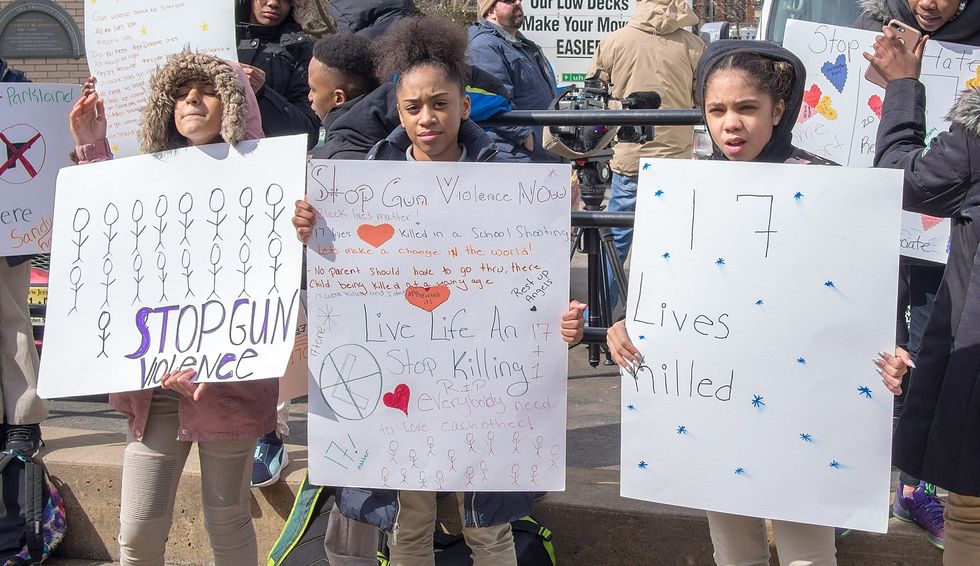I began writing this article with the intent of raising a question. I have long been curious about the lack of reciprocity between the government and its citizens. It sometimes seems as though there is a massive brick wall between us, and those obligated to serve us. When a vast majority of people agree there is a need for change, yet the people that are elected to represent the voices and enact the wishes of those which they govern continuously turn a blind eye, there is a clear issue. I have been wondering what the root of this disconnect is in America, because government-citizen relationships have not always been this disjointed, and generally, misunderstood. Are our government officials less responsive to citizens' wants and needs because they've suddenly become less moral, deciding that their agenda to maintain power overrides the desperate pleas of the people? I would say this is an accurate statement, but a statement that also reigns true for years' past. What is so different now? Why is there a collective feeling of futility and weakness at such an unprecedented magnitude?
It seems like our loud and proud voices are being silenced in outrageous numbers. I wonder, are officials becoming less and less receptive to change because it's all been done before? Is our government using the context of history in order to evaluate their ability to sit idly by? Using the calculated weaknesses of past events and former citizen demands to entirely self-justify their silence? I can't help but believe this is a logistical choice. Additionally, as time passes, the fabric of society grows thicker and even more impenetrable to all that rejects the status quo. The foundation of our government only becomes rock solid with this passage of time. These constructs are only becoming further developed and further evolved than they were an any other point in history. Government has the strength to quell citizen uprisings, instead of inclining towards majority needs, because they have an unparalleled strength that comes with a highly developed, and thus, watertight political infrastructure. The disengagement between the government and its people only reinforces officials' disposition to act as less than indebted to their constituents.
However, the government is not the only force at fault in this stagnation in change. We, as citizens, have the responsibility to unite in greater numbers. At the beginning of all global political history, everyone who felt like anything at all needed changing consequently felt responsible; because populations were so small within villages, all voices were taken into account. Although this is nowhere near the case today, we need to end this "lost in the shuffle" political culture that creates such alarming amounts of indifference. We need to engage our political fervor and advocate for our opinions as though we are the only voice to be heard. We all know because we've all read it in our history books. When like-minded individuals form coalitions, yet continue to each maintain their individual power, the results are downright formidable; change becomes inevitable.
I am a tremendous advocate for the use of social media in making a difference, but I also fear it adds to people's apathy. People are often uneasy to join the fight, even when the ability to participate is so easily accessible. We must remember that groups are made up of individuals, and regardless of how many people appear to be activists on your timeline, there are not enough. Contribute your voice to the whole. It often times seems like it won't do anything, and sometimes it really doesn't, but I am a firm believer in the butterfly effect. The butterfly effect is the aspect of chaos theory that suggests that a localized change within a complex system can and will have massive effects elsewhere. PHYSICS HEAVILY SUPPORTS THE IDEA THAT YOUR VOICE ACTUALLY MAKES A DIFFERENCE IN THE POLITICAL CLIMATE! SERIOUSLY!
I never saw the point in making an effort. My opinion on being politically involved used to be pessimistic until I witnessed the voice of one evolve into those of millions firsthand. Everyday, we gain more knowledge than ever previously existing in history. We can never stop using this to our advantage. These thick societal fabrics and sturdy government constructs stand stronger than ever recorded, but so do we. You might not be the next Martin Luther King, Gandhi, Malala, or Emma Gonzalez, but dammit, why isn't it worth a shot?
















